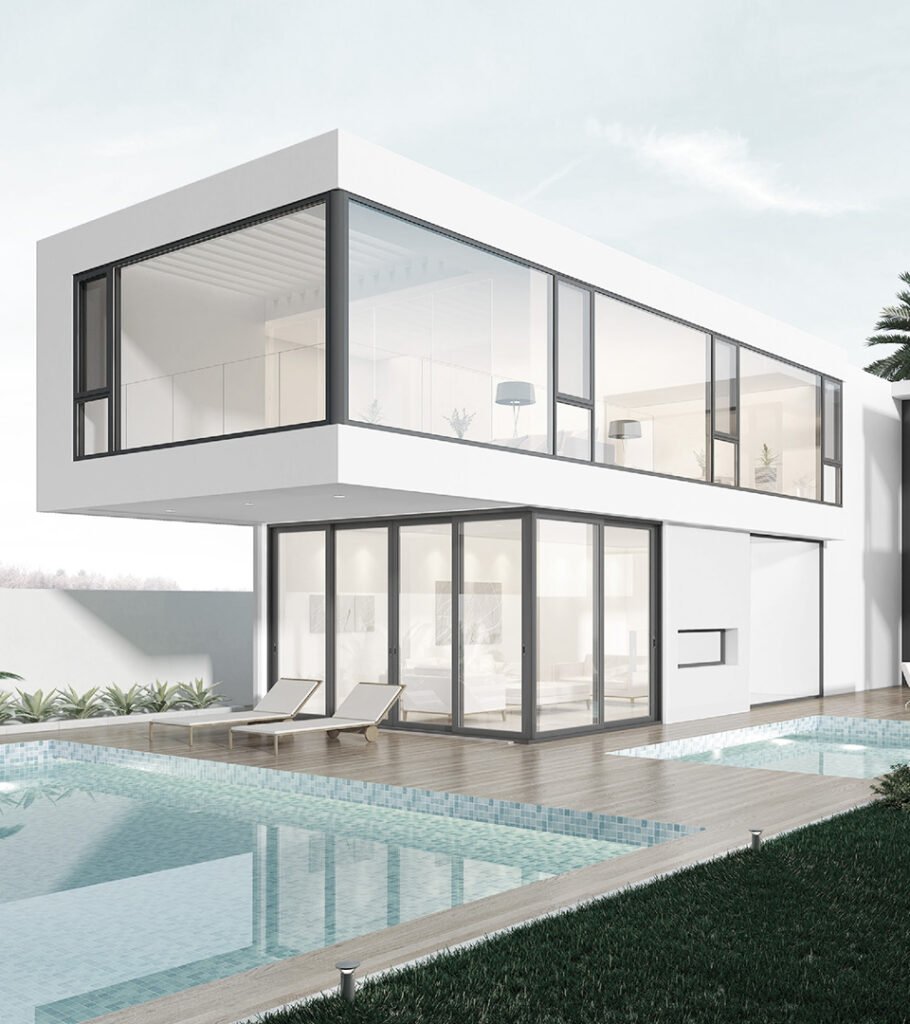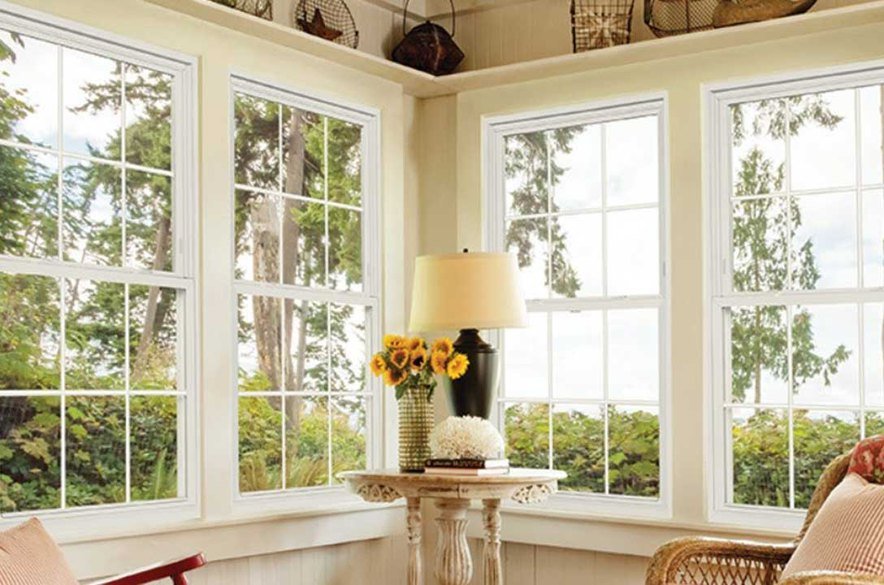Choosing the right material for your windows is a crucial decision that impacts not only the appearance of your home but also its energy efficiency, durability, and overall value. Two of the most popular window frame materials are aluminum and vinyl. Both have their strengths and weaknesses, so how do you know which is the right choice for your home? In this guide, we will break down the pros and cons of aluminum and vinyl windows to help you make an informed decision.
Aluminum Windows
Aluminum windows are known for their sleek design and superior strength, making them a popular choice in modern architecture and commercial buildings. But aluminum windows offer much more than just aesthetics.
Pros of Aluminum Windows
- Durability: Aluminum is highly resistant to weathering, making it an excellent option for homes in harsh climates or areas prone to moisture and extreme temperatures. These windows are less likely to warp, crack, or swell over time.
- Sleek Design: If you’re going for a contemporary, minimalist look, aluminum windows are perfect. Their slim frames allow for larger glass panels, maximizing natural light and offering expansive views.
- Strength: Aluminum is strong and lightweight, meaning it can support larger windows or more intricate window designs without compromising on structural integrity.
- Low Maintenance: Aluminum windows are relatively low maintenance and require only periodic cleaning to keep them looking pristine. They are not prone to rust or corrosion, especially when treated with an anti-corrosive coating.
- Customization: Available in a wide variety of colors and finishes, aluminum windows can be customized to match your home’s design.
Cons of Aluminum Windows
- Energy Efficiency: Aluminum is a poor insulator compared to other materials like vinyl. Without thermal breaks, aluminum windows can conduct heat and cold easily, leading to higher energy bills. However, modern aluminum windows are often built with thermal breaks to mitigate this issue.
- Cost: Aluminum windows are generally more expensive than vinyl windows, especially if you choose high-end, energy-efficient models with thermal breaks.

Vinyl Windows
Vinyl windows have grown in popularity due to their affordability, energy efficiency, and ease of maintenance. They are an excellent option for homeowners looking for a balance between functionality and cost-effectiveness.
Pros of Vinyl Windows
- Energy Efficiency: Vinyl is a natural insulator, making it an excellent choice for energy-conscious homeowners. Vinyl windows can help reduce heat transfer, keeping your home cooler in the summer and warmer in the winter, which may lead to lower energy bills.
- Affordability: Vinyl windows are typically more budget-friendly compared to aluminum, making them a popular choice for homeowners who want an energy-efficient solution without breaking the bank.
- Low Maintenance: Vinyl windows are virtually maintenance-free. They don’t require painting, staining, or sealing and are resistant to fading, cracking, and peeling. All you need is regular cleaning to keep them looking new.
- Durability: Vinyl windows are designed to withstand various weather conditions. They are resistant to rust and corrosion, and they won’t warp, crack, or rot over time.
- Variety of Styles: Vinyl windows come in various colors and styles, although customization is somewhat limited compared to aluminum windows.
Cons of Vinyl Windows
- Less Strength: Vinyl is not as strong as aluminum, which means it may not be suitable for very large windows or areas where structural integrity is crucial. The frames of vinyl windows are typically bulkier to compensate for the material’s lower strength.
- Aesthetics: While vinyl windows come in different colors, they don’t offer the same sleek, modern look as aluminum. The thicker frames can sometimes look less elegant, particularly in minimalist or high-end architectural designs.
- Limited Customization: Vinyl windows can’t be painted or easily modified, so you’re limited to the factory colors and styles.

Which is Right for You?
The choice between aluminum and vinyl windows comes down to several factors:
- Budget: If you’re on a tight budget, vinyl windows are the more affordable option and offer excellent energy efficiency.
- Design Preference: For a modern, sleek look with large glass panes, aluminum is the way to go. If you prefer more traditional styles, vinyl windows may fit your home better.
- Climate: If you live in an area with extreme temperatures, vinyl may offer better insulation, reducing energy costs. However, aluminum with thermal breaks can be just as efficient in certain designs.
- Durability: Both materials are durable, but aluminum edges out in areas that experience harsh weather conditions, while vinyl excels in resisting rot, corrosion, and color fading.
At Delanshini Doors and Windows, we offer a wide range of both aluminum and vinyl window options tailored to your needs. Whether you prioritize sleek design, energy efficiency, or durability, we can help you choose the right windows for your home.
Contact us at wang@gddlsn.com for a consultation on which window material is best suited for your project!
Product Comparison & Buying Guides
Aluminum vs. Vinyl Windows: Which Offers Better Energy Efficiency?
Aluminum vs. Vinyl Windows: Which is Right for You?
Aluminum vs. Vinyl Sunrooms: Which One is Better?
Vinyl or Aluminum Sliding Doors – Which is Best?
Aluminum Casement Windows vs. Other Window Types: A Comparative Analysis
Comparison Guide: Casement Windows vs Double-Hung Windows
Bay vs. Bow Window: How Should I Choose?
